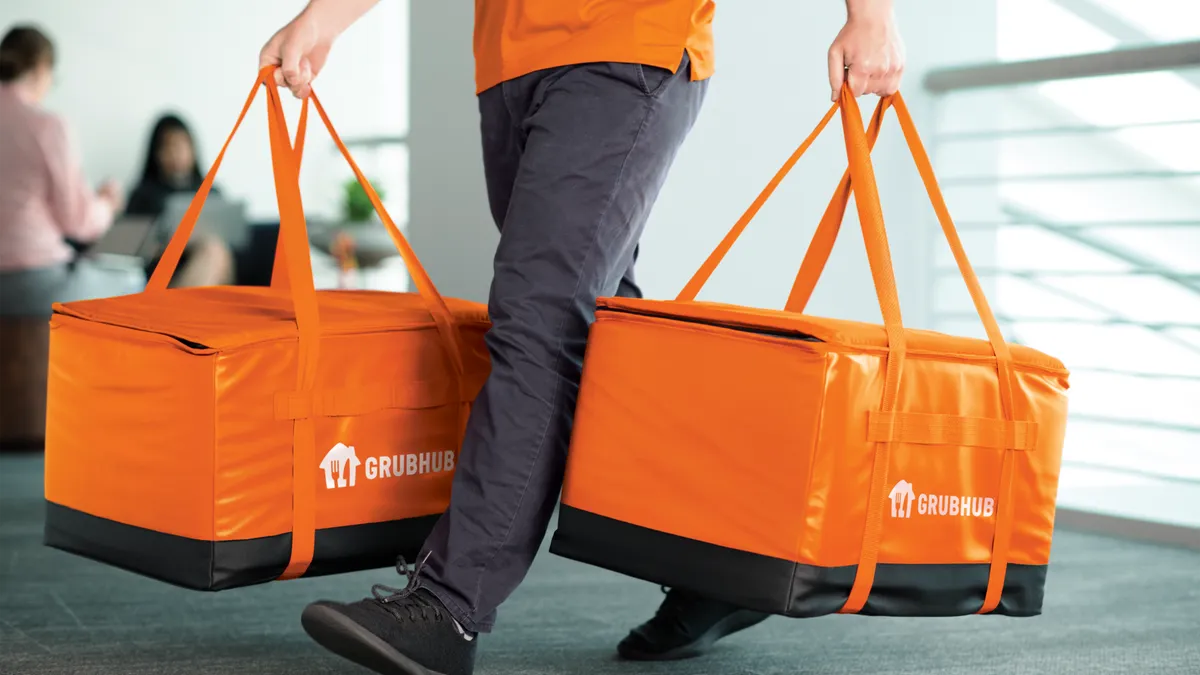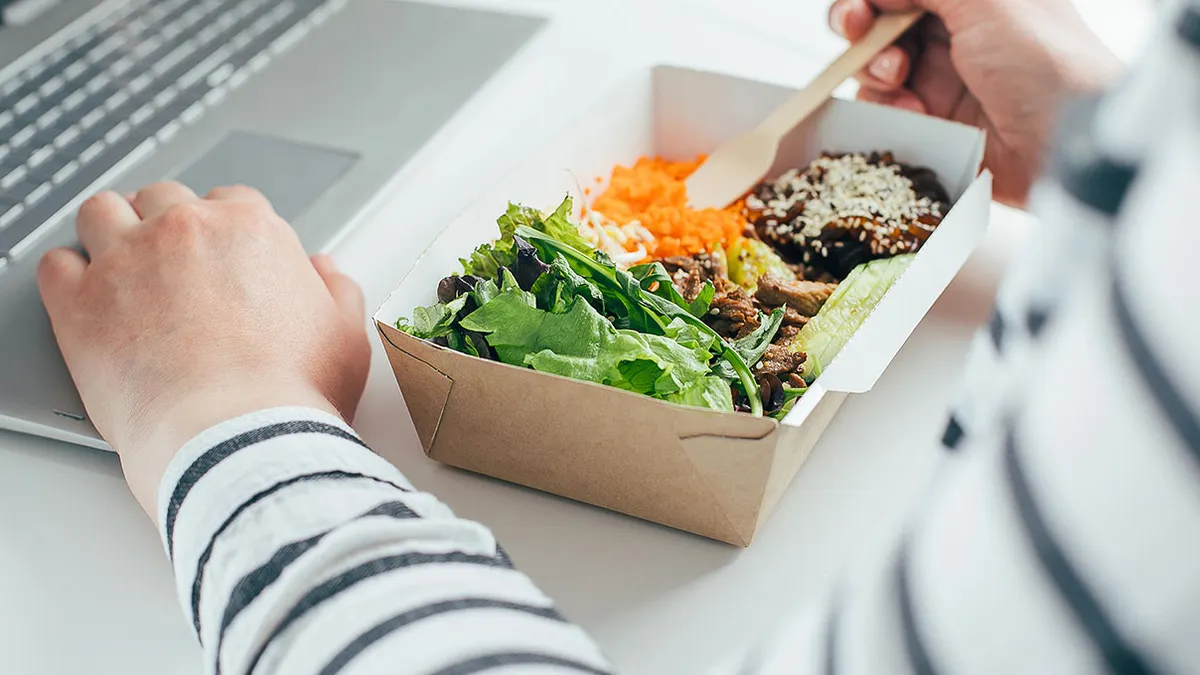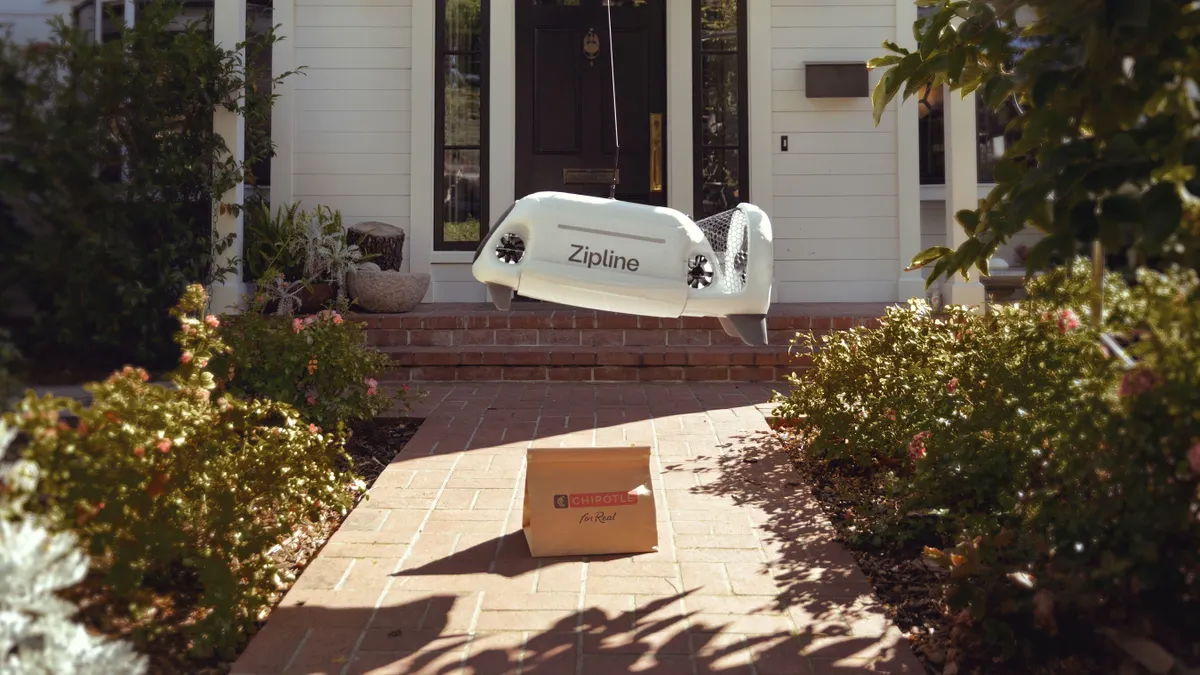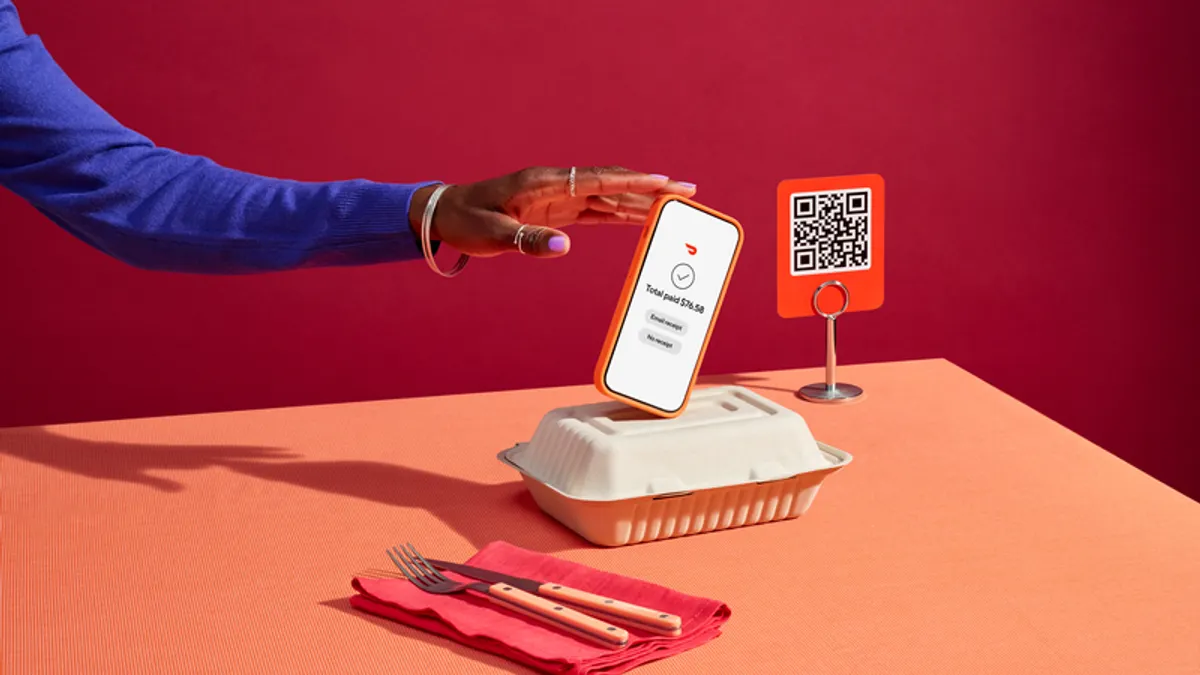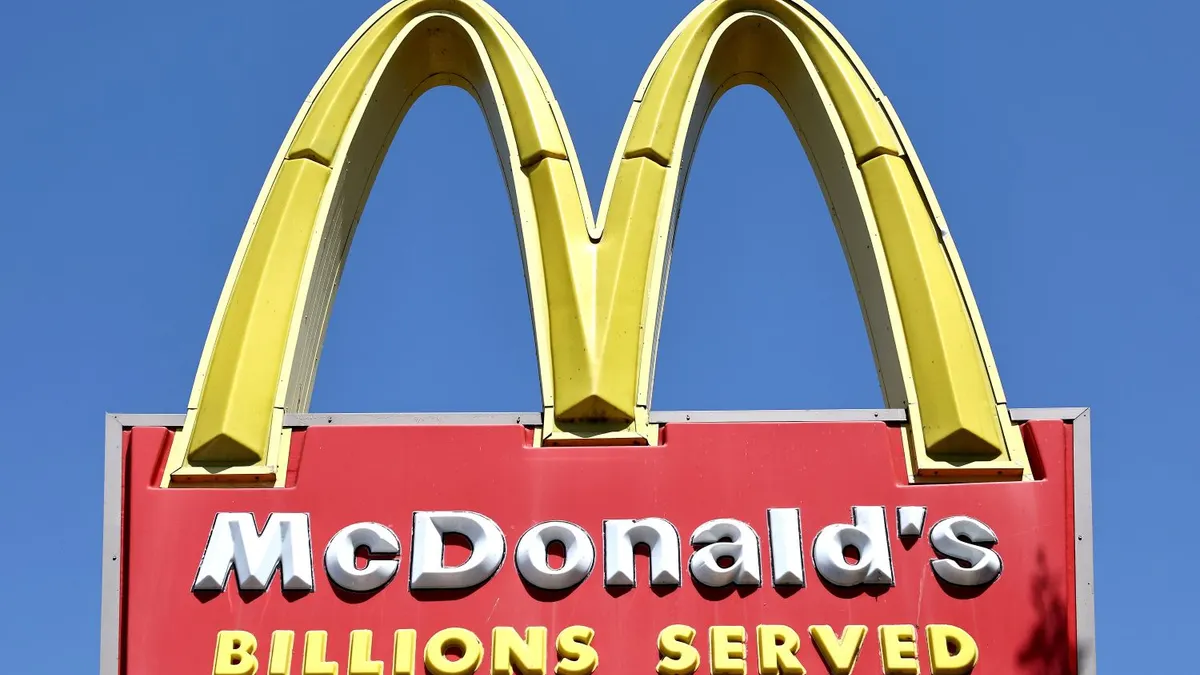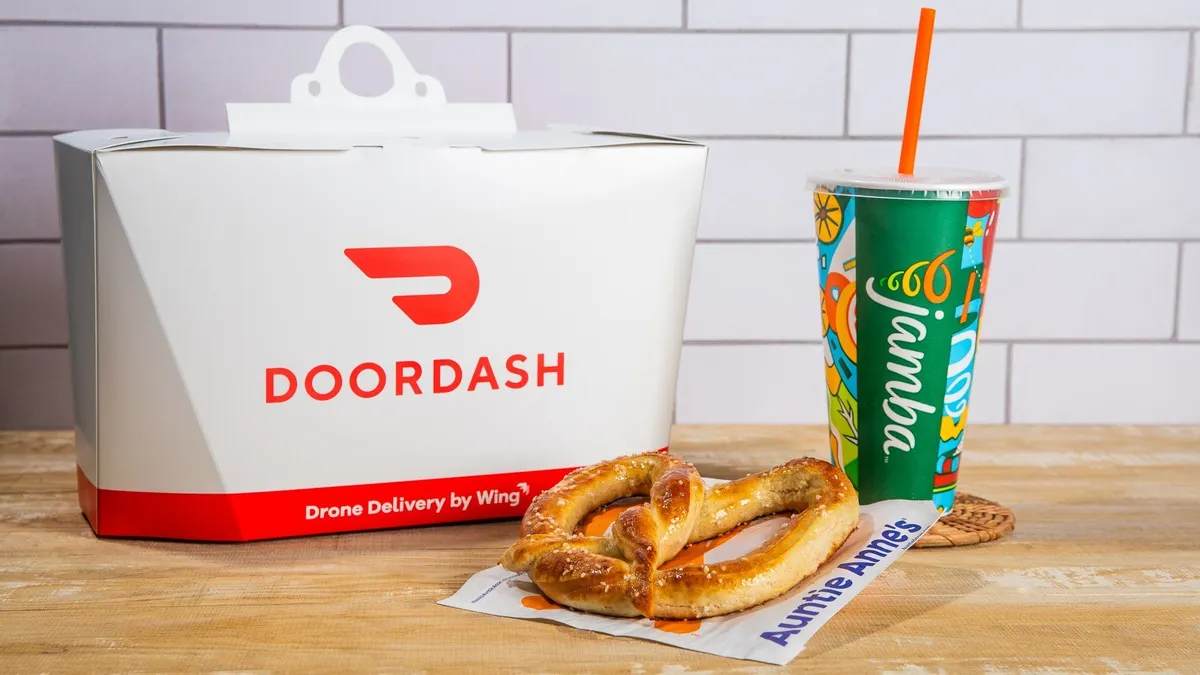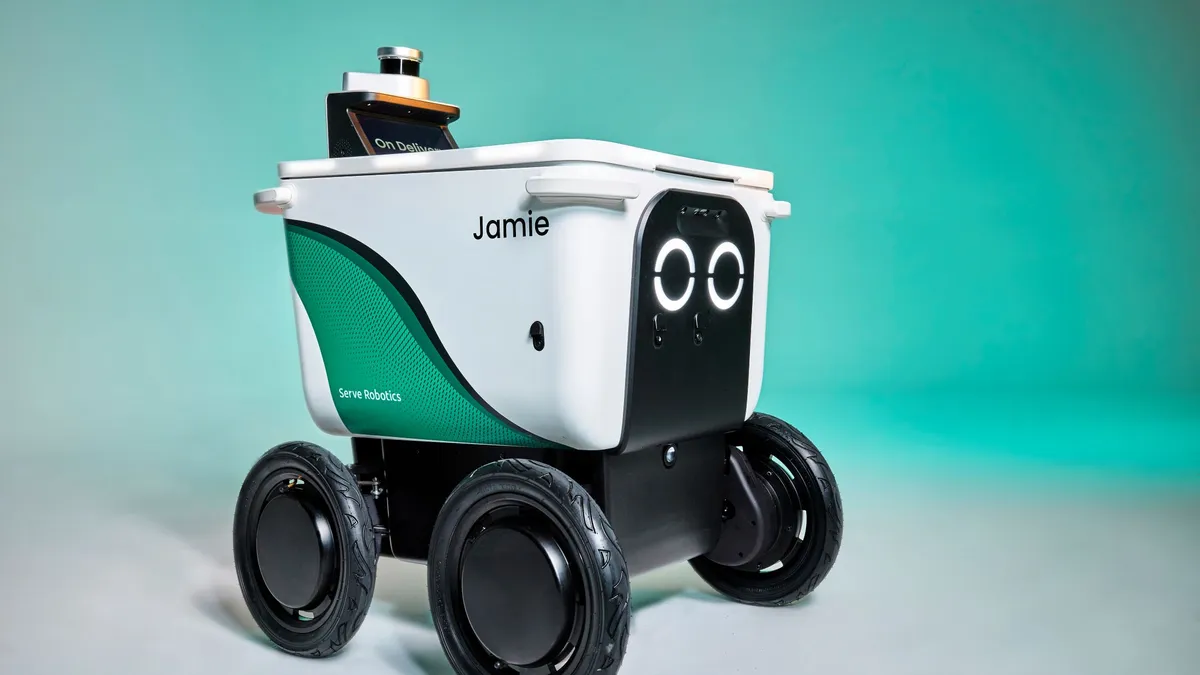Lunch Break is a series of Q&As with restaurant leaders about how their brands are overcoming industry challenges.
Corner Bakery is no stranger to off-premise success — its catering business drives 25% of an annual unit volume of $2.3 million per store — but still has its fair share of challenges when it comes to fulfilling individual delivery orders.
The casual chain manages its catering piece in-house, but uses third-party platforms for delivery. It attempted self delivery from November 2018 to January 2019 in Chicago, and while the process worked operationally, the restaurant found that it couldn't drive enough customers to its website, Corner Bakery's Director of Off-Premise Business Development Ed Keller told Restaurant Dive.
These partnerships are expensive, and maintaining control of brand perception and staying on top of menu pricing and promotions across partner delivery brands can be chaotic, Keller said. But the brand is embracing off-premise opportunity, and looking to experiment with new innovations like ghost kitchens to expand its footprint in the crowded space.
This interview has been edited for clarity and brevity.
RESTAURANT DIVE: Many companies feel that third-party partnerships undermine reputational control of their restaurants. Have Corner Bakery's third-party partnerships changed its branding approach?
ED KELLER: Not really, but I know what people are talking about. There's horror stories out there about food being tampered with, about drivers taking forever to get to where they're going, all that stuff. And I would tell you for us, those negative experiences have been very, very few and far between. That doesn't mean it doesn't ever happen. We are in fact now looking at tamper-resistant stickers that we can put on our bags just as further protection.
We pride ourselves on giving good food and good service — we control the whole experience. But when you do delivery with third-parties, you lose that control and we're not comfortable with it. The thing I had to come and realize is these third parties aren't restaurant people. They don't have the same urgency we have. They're tech people, and if you're trying to find some of them on the weekend, forget it, you know? So that's one piece of the puzzle I think we've got to come to grips with. The other piece that is very interesting for me, and it's got me asking questions now because I use third party a lot myself when I'm home, is what is the customer's expectation? I opened the door, the delivery person says, "Hi!" and hands me the bag and that's it. Do I care how they're dressed? No. As long as they don't smell or they're not sloppy. If I had to heat it my meal a little bit, would that bother me? No, so I wonder if we don't have realistic expectations — are we trying to set a quality standard that really isn't expected by the consumer? I don't know the answer to that, but I suspect we are.
"I wonder if we don't have realistic expectations — are we trying to set a quality standard that really isn't expected by the consumer?"

Ed Keller
Director of off-premise development, Corner Bakery
What are your biggest delivery challenges, and how do you manage them?
Keller: Overall it's working fairly well. Each delivery partner is different. In some cases menu management and having pricing up to date is a challenge. Sometimes it's bad drivers, which isn't really an issue because when it happens we just ask to not have that driver in the workforce anymore. And our partners are constantly talking to us about marketing promotions, so you could run free delivery, but guess what, you're paying for it. It's a lot of irons in the fire when you're working with that many different providers and they all have different fees and charges.
And there are some things we don't sell via delivery because it won't travel well. Paninis would be soggy. That's one of our big sellers, but the reality is that it just can't be done in a quality manner via delivery.
Who are your delivery partners?
Keller: We're using the big four. So Grubhub, DoorDash, Uber Eats and Postmates. In Texas we're using Favor. We also partner with a couple of interesting ones that are limited — Foodbsy, our operators love them, and Ritual. We just started working with Uber Eats, which is for catering, not yet delivery. And there's so much chatter about the fees and the cost of delivery, but we're not doing a whole lot of national marketing. So we kind of look at it that some of that costs and the fees we're paying, that's marketing, and they're marketing something we're not currently doing. So we're pretty comfortable with the fees we've negotiated, which are lower than what you usually hear. And then we can justify some of the costs.
But delivery is this thing that keeps evolving. it seems like every day, and nobody's making money at it. So what's going to happen? Who's going to buy who? I think the interesting thing I've seen in the last year is that the third parties are more open to negotiating, whether it's really looking at the fees or sharing data. They're trying to figure out every way they can get more business ... but your pie is only so big. And now a fairly significant piece of that pie is going to third-party fees. So I can't keep adding all these services. So it's an interesting time. We'll see what happens, but we've got what we want for right now.
How do you see delivery shaping the future of the restaurant space?
Keller: It's not going away. It's a world we all have to play in and we just have to decide what's right by brand. You know, we're comfortable. We have a high annual unit volume, it's $2.3 million per store annually. Our catering percentage is high. It's 25% of that, which is a significant dollar amount. So when we want to move the needle at $2.3 million, we need some help. And third-party helps that. And given the trend in the industry where people aren't coming in as much, I'd like to say, "Let's drive them all to our website," when we have 200 stores, but I'm not McDonald's and I'm not Starbucks, where it's easy to get people to your site. For ours, it's a little more work. We tested at the end of last year and into the beginning of this year self delivery, where we would take the orders and deliver them ourselves. We figured out how to do it operationally. We just couldn't generate the volume, because it had to come through our website. And that's more of a long-term proposition: How do you change people's habits?
"Your pie is only so big. And now a significant piece of that pie is going to third-party fees. So I can't keep adding all these services."

Ed Keller
Director of off-premise development, Corner Bakery
Have you considered ghost kitchens as a way to expand your delivery footprint?
Keller: Definitely. You need to be talking about it. I'm fortunate that we built most of our restaurants with extra space dedicated for catering and that helps. And then the way our menu is built, we can still funnel orders through our current kitchen and we're not having capacity issues ... but we'll test it I think at some point. We don't have a crying need for it right now, but I think it's something we have to at least look at to know how does this fit into the future because third-party is going to affect how we build new restaurants.
What are you most excited about for the future of off-premise at Corner Bakery?
Keller: You know, I remember a friend of mine — boy, he was ahead of time — said he'd love to get food delivered at home. And I'm like, "yeah, yeah, yeah." Well now look what's happened. So I think now the exciting part is it stimulates your thinking to go, what are the possibilities out there as far as what we could do with getting food off-premise to people? People want their food when they want it, where they want it, and that's not going to change from what I can tell.
We're unique because we have delivery vans for our catering because our catering business is so busy. We have delivery vans at every restaurant, but we only use our delivery people for catering because they're already busy. It doesn't make sense to let them do the small orders for delivery. So I don't think we'll ever evolve to where we're doing our own delivery. We're going to need somebody, but I think the exciting thing is that it's almost like a race to see who can come up with the new best idea. Someone started with a ghost kitchen — what's going to be the next big thing?







